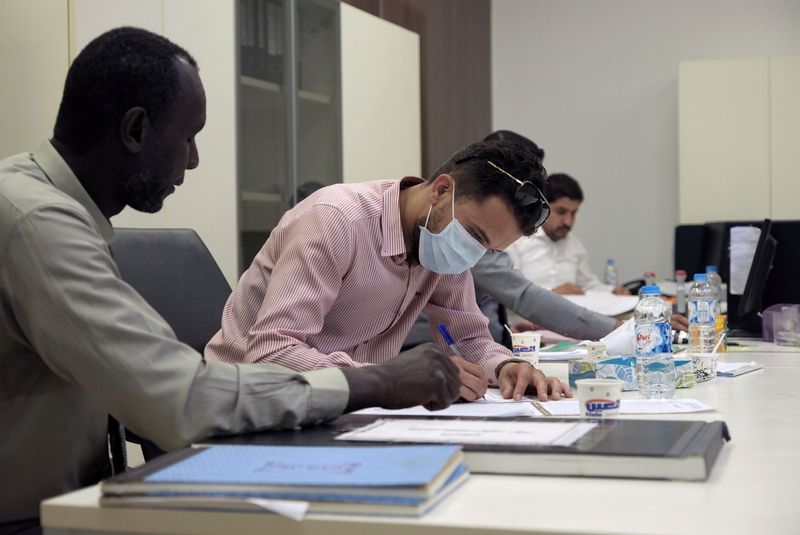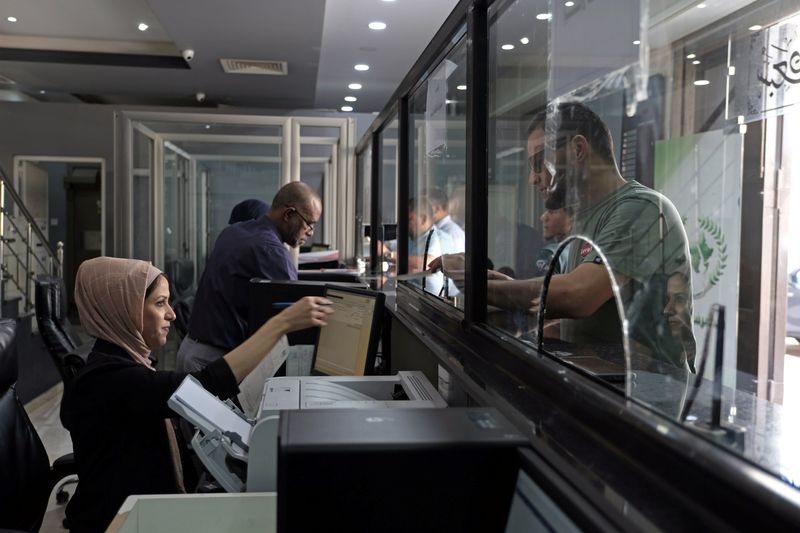By Ayman al-Warfali
BENGHAZI, Libya (Reuters) - When Jamal al-Fallah tried to withdraw money from his bank in Benghazi, he was told no cash was available, the result of financial problems in eastern Libya aggravating a cash shortage that has hit the whole country.
With debts of tens of billions of dollars, and local banks suffering, according to the parallel central bank set up by authorities in Benghazi, eastern Libya faces a looming crisis.
Waiting outside Wahda bank with a few other people, Fallah said he had only turned up because it had recently said there would be money available.
"When we go to the bank they say there's no liquidity," said Fallah, adding that he manages to pay his daily bills by borrowing cash from the owner of a supermarket.
He did not receive any cash until a week later - his first receipt of his salary in months - and within an hour had paid most of it to his landlord, he said later by phone.
Once one of the richest countries in Africa thanks to oil exports, Libya has crumbled since its 2011 uprising, divided between rival governments in east and west, including institutions such as the central bank.
As the war between the Tripoli-based Government of National Accord (GNA) in the west and Khalifa Haftar's Libyan National Army (LNA) in the east has intensified in recent years, the economic problems have also grown.
The tough living conditions - including power cuts and fuel shortages - have prompted protests in both western and eastern Libya in recent weeks, adding to the political pressures faced by both sides in the conflict.
A blockade of oil exports by the LNA since January was lifted last month and revenue is gradually starting to flow back into the country, but it cost Libya more than $10 billion in lost income.
Oil receipts are paid into the Tripoli-based Central Bank of Libya, which then pays salaries of most state employees across front lines including in areas held by the LNA.
LOOKING WEST
The eastern central bank has financed Haftar's war effort. It has raised money by selling treasury bonds to local banks which the central bank's head of liquidity Ramzi Alagha said could exceed 40 billion dinars ($29 billion) so far.
It has also been importing dinars printed in Russia.
Tripoli cut off the breakaway eastern central bank from most clearing operations in 2014, adding to the problems facing commercial banks as two parallel financial systems emerged.
Some people in the east try to change to bank rivals to ensure continued access to salary payments.
People often use cheques instead of cash, but these sometimes bounce as banks try to control their own cashflows. One man who tried to buy land worth 30,000 dinars was told by the bank he would have to make three separate payments over a longer time instead of paying it all at once.
Cheques in dollars can also be exchanged in eastern Libya for different values depending on which bank has issued them.
"We got to the point where banks are unable to provide funds, and this reflects on the prices of goods where there are shortages," said Asam al-Abairesh, head of the payments department at the eastern central bank.

Both the western and eastern central banks are now subject to an international audit under the United Nations-led political process to resolve the conflict, with the eventual aim of reunifying Libya's institutions.
